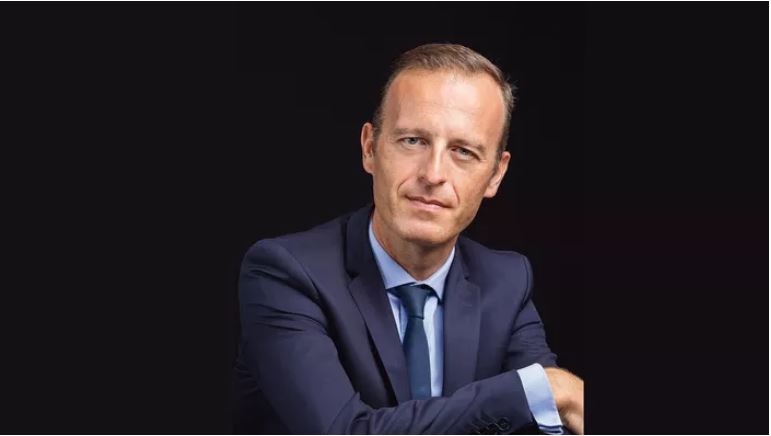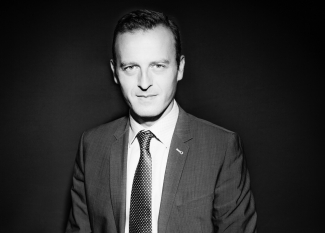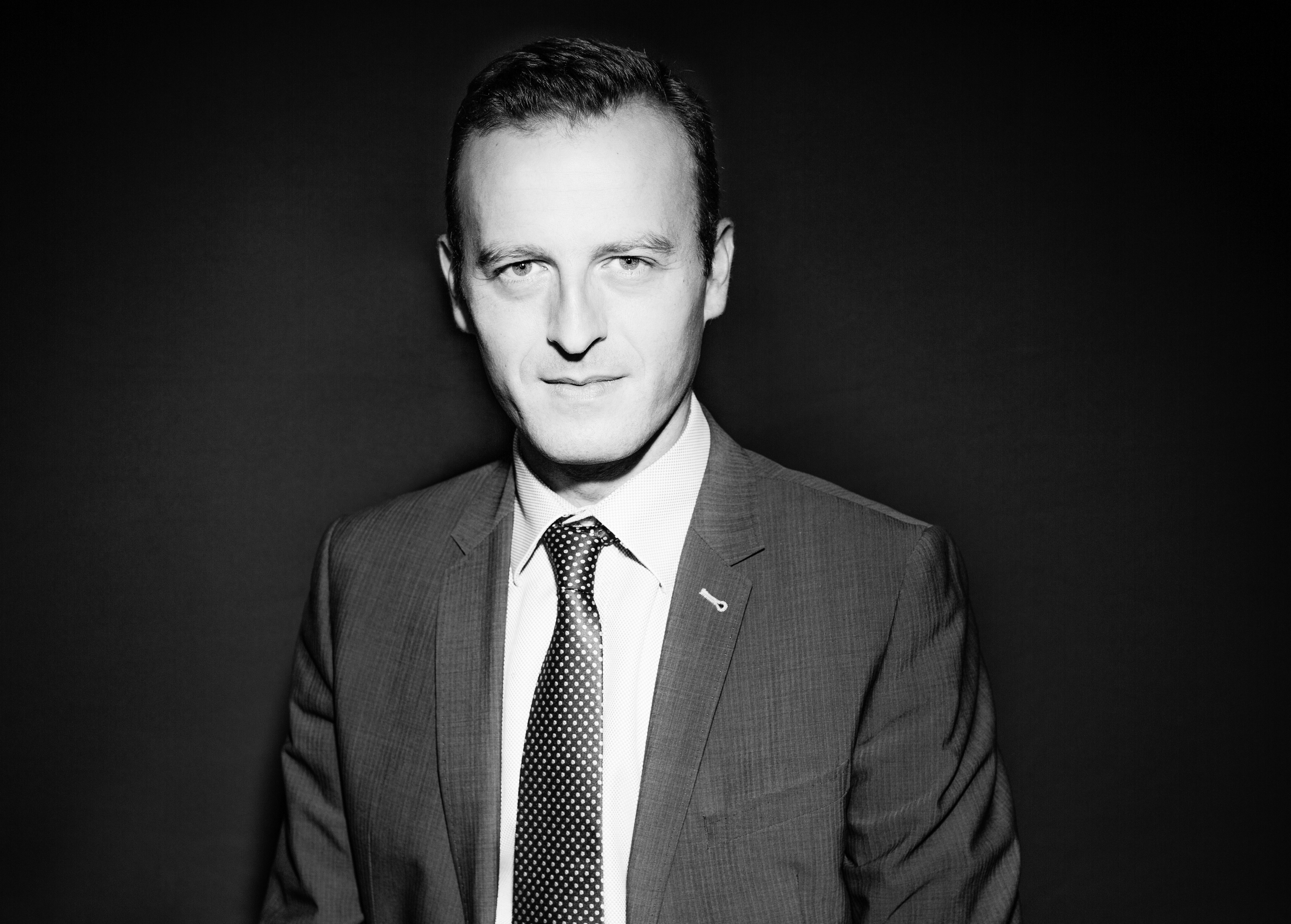Thomas Gomart 'Russia is waging a colonial war in Ukraine under nuclear protection'
Thomas Gomart is a French historian and director of the French Institute of International Relations (Ifri). In an interview with Le Monde, he analyzed the new global strategic situation and gave a first assessment of the disruption caused by the Russian aggression in Ukraine.

What has this conflict already changed in the world order?
This war is a backlash of the "European civil war," to quote Ernst Nolte (1923-2016). The German historian established a "causal link" between the Bolshevik revolution and the rise of fascism in the West. We have forgotten that the Ukrainian question was one of the crucial issues of the First World War in the East. And we have ignored to what extent the victory of the USSR against Nazism had become Vladimir Putin’s state religion. For almost 20 years, Russia and the West have been engaged in a cognitive confrontation to impose each its own model. In three months, a double open fracture has appeared: between Ukraine and Russia, on the one hand, and between Russia and the West, on the other. With the return of high-intensity warfare, the European continent has lost one of its comparative advantages in globalization, that of strategic stability. Compared to the global stakes, this war appears anachronistic to those who have matched globalization with demilitarization since 1991, namely the Europeans. It is not so for those who see the world through military power relations, such as the Russians, the Chinese and the Americans.
Is this a strategic turning point?
Without a doubt. Russia is waging a colonial war under nuclear protection. The launching of the "special military operation" was accompanied by explicit nuclear rhetoric. Mr. Putin has acted to subjugate Ukraine and inhibit the West. The strategic turning point is not so much the Russian aggression, which is merely a continuation of the 2014 aggression, as the Ukrainian ability to counter it. Russia has also implemented a position of aggressive safeguarding through its nuclear power. This breaks with the cautious approach observed by Moscow and Washington since the Cuban missile crisis in 1962. Finally, alliance mechanisms produce large-scale military and economic effects.
On the economic level, could this war hit the globalization process, already undermined by the pandemic?
Every war has a human and economic cost. It contributes to the return of inflation and affects food security. It leads to a new mutation of globalization, which had been thought as an entanglement of economic interdependencies, of model competition against a background of decoupling. Since 2016, political capitalism – that is, the intertwining of economic growth objectives and national security imperatives – has resulted in a technological decoupling between China and the United States. An energy decoupling between Russia and Europe has now been added. This refers to the conditions of the hegemonic cooperation on oil laid down by the United States after 1945. For them, it was basically a matter of securing oil supplies for Europe and Japan from the Middle East in order to preserve their own reserves and to place energy security at the heart of military alliances.
The various European attempts to turn to the USSR to diversify their supplies by land have always caused tensions with Washington. Those tensions resurface at times of acute strategic crises. During the Cuban crisis, the Kennedy administration asked Europeans not to export technologies for the construction of the Friendship Pipeline. Twenty years later, during the Euromissile Crisis, the Reagan administration denounced the first gas pipeline linking Siberia to European markets.
Despite strong pressure, European capitals developed a Euro-Russian energy interdependence, which indirectly reduced their naval efforts. Forty years later, the war in Ukraine has broken this interdependence, heralding an increase in imports of American liquefied natural gas. Once again, Europeans have to face the long-standing problem of securing their energy supplies at a time when they thought that the energy transition would reduce geopolitical risks. On the contrary, it accentuates them. While there is an alignment between this disruption and the 2050 decarbonization target, the fact remains that Europeans are forced to urgently redesign their energy systems.
Russia has not become a pariah state. Are we not in a "the West against the Rest" situation?
First, Russia is not like Slobodan Milosevic’s Serbia, because of its role in the global geopolitics of energy, its nuclear arsenal and its diplomatic status. Secondly, while the majority of countries have condemned the Russian aggression, they have not necessarily implemented sanctions. This is the case, for example, of the countries of the Shanghai Cooperation Organization and, in particular, of China and India. In Africa, it is the case of countries such as Algeria, Mali and Senegal. In the Middle East, it is the Gulf countries. These countries refuse to take sides between Russia and the West, considering that this war is not theirs. Russia is disconnected from the Western side of globalization, but it is trying to reconnect elsewhere.
In the age of hybrid wars, the violence of this conflict reminds us of the massacres of the 20th century. How can we explain it?
We must distinguish the phase during which Russia conducted hybrid operations, which allowed it to exert direct pressure on Ukraine and indirect pressure on the West. Back then, it knew how to operate below the level of war. When it crossed that threshold, it was dragged down by its own military weight – that of a disparate army, poorly commanded and incapable of making quick decisions – because it had staked everything on Volodymyr Zelensky’s fall. Since then, Russia has been wading through a war of attrition and destruction, which leads to numerous abuses.
What lessons can be learned from the resistance in Kyiv?
Ukraine is now a country up in arms against its invader. The buildup of its armed forces between 2014 and 2022 was remarkable, but it does not explain the main point: Ukrainians responded to the general war effort recalling Clausewitz's trinity of people, military authority and government. Footage is striking. We see Ukrainian citizens accompanying their families to the border before joining their units, the regular speeches of President Zelensky in a khaki shirt and, of course, the mass graves. Kyiv has mastered its strategic communication. While we still don't know the numbers of civilian victims and military losses, we are witnessing the heroization of certain figures, such as the fighters at the Azovstal factory. After managing to resist, the Ukrainians are now convinced that they can win. As Emmanuel Macron emphasized in Strasbourg, it is up to them to "define the conditions for negotiations with Russia.
Does this show the importance of emotions in war?
It is an essential dimension. Many were surprised by Mr. Putin's decision, insofar as it went against his interests. This surprise can be explained by a conception of international politics as being mainly a matter of calculations and cross-interests. In a prolonged phase of tension, passions – such as hatred, contempt, hope or faith – are more important than interests. It is very difficult to anticipate the operational translation of passions, but it is a mistake not to try to identify them precisely with all the protagonists, first and foremost Mr. Putin. This war is the very predictable outcome of his ideological degeneration.
Haven't these three months of conflict also taught us that nothing is militarily possible without the Americans?
Some Russian experts admit that they were mistaken on one essential point, that is, believing that the United States would lose interest in Europe and focus exclusively on China. They were convinced of an inexorable Western backlash, after the American rout in Afghanistan. By publicly disseminating their intelligence, the United States did not prevent the aggression, but they showed their allies their degree of penetration of the Russian system. It is now a matter of exploiting Mr. Putin's strategic mistakes to the fullest through an indirect strategy, which consists in preventing the conflict from extending beyond the Ukrainian territory and the Black Sea. The United States provide political support and massive military aid to Ukraine. In doing so, they are strengthening transatlantic ties, while showing the military limits of their allies. Moreover, the sanctions are keyed to the dollar, so they have far more consequences for European economies than for their own. Six months after [leaving] Afghanistan, the Americans are emphasizing their strategic centrality, thus sending a message to China.
What should the 27 countries of the European Union do?
They must rearm militarily, act diplomatically and recover economically, or else they risk being globally marginalized and becoming unable to stabilize the continent. The Ukrainian struggle and American support offer them a precious respite – given that they know how to use it to prepare for future shocks. With Finland and Sweden’s entry into NATO, the alliance and the European Union coincide even more. This should lead Europeans to frankly ask themselves the following questions: What would their collective attitude have been if the White House had decided not to intervene, as could have been or could be the case with Donald Trump? Would they have watched the Ukrainians being butchered?
The transatlantic link has strengthened since the beginning of the war in Ukraine. Does this change the situation for the European continent?
That is certain. In 2001, Mr. Putin said, "Russia is a specific integrationist node, linking Asia, Europe and America." Twenty years later, he is disintegrating the European security architecture by invading Ukraine. The resurgence of the Russian question is forcing the West to redefine realistic war aims to counteract Russia's aggressiveness in the long term and find acceptable ways of coexisting with it. It is a very sensitive debate, especially for countries that have suffered under the yoke of Moscow and see a unique opportunity to put Russia on trial for its own history.
Should we avoid "humiliating" Russian, to use Mr. Macron's words?
Humiliation is a "fundamental emotion," but it is Russia that is humiliating itself in Ukraine. It is the humiliation of the rapist in front of his victim after the act. However, it is necessary to reinject interest and calculation in the current phase precisely to prevent emotions from overwhelming the judgment of the different protagonists. There is no strategic contrition to be expected from Mr. Putin. This war is his own, above all. The question is whether he is able to mobilize the Russian people as Mr. Zelensky was able to mobilize the Ukrainian people.

Share






